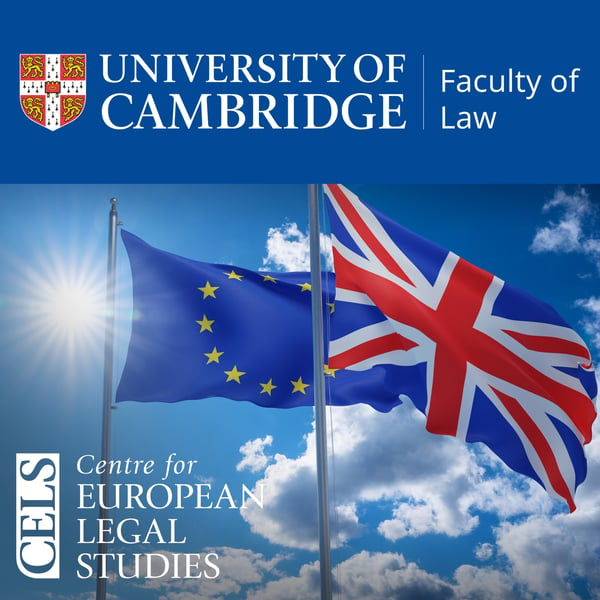The Future of the European Union: Socio-Economic and Political Challenges to its Legal-Constitutional Framework: CELS Seminar
Cambridge Centre for European Legal Studies (CELS) Podcast
Faculty of Law, University of Cambridge
0 • 0 Ratings
🗓️ 13 March 2025
⏱️ 36 minutes
🧾️ Download transcript
Summary
Speaker: Dr Bernadette Zelger, University of Innsbruck
Abstract: The debate about the future of the European Union has long left academic circles, arrived in the midst of society and been awarded political attention. Meanwhile, there has been an increase of Euroscepticism accompanied by more nationalist political developments echoed in the swings to the right all across the EU. These developments may, arguably at least in parts, be explained by social resentments of the peoples of Europe. While acknowledging that law constructs and contributes to a social reality of its own it is thus, arguably also about the lack of a genuine socio-economic equilibrium within the law and political system of the EU. This imbalance is not only found within the EU legal constitutional framework, but also within the case-law of the European Court of Justice. However, possible solutions to solve this socio-economic imbalance are limited: It is either (i) Treaty reform or, alternatively, (ii) a change in the approach of the Court in its jurisprudence. While these alternatives are both valid and, to some extent, mutually exclusive, they unveil and epitomise different visions as regards the future of the European Union. However, while acknowledging the differences in the approach, they are arguably different means to serve the very same end: Warrant the European Union’s future success.
For more information see:
https://www.cels.law.cam.ac.uk/weekly-seminar-series
Transcript
Click on a timestamp to play from that location
| 0:00.0 | Good afternoon, everyone, and welcome to this last Sells lunchtime seminar of the year. |
| 0:08.6 | It gives me very great pleasure to welcome our speaker today, Dr. Bernadette Selga, |
| 0:15.3 | who is an assistant professor at the University of Innsbruck. |
| 0:19.8 | Dr. Selgar is a graduate of that university, |
| 0:23.6 | but she also holds a diploma in competition law from King's College London, and also |
| 0:29.7 | an LLM, also a specialization in competition law from Queen Mary University of London. |
| 0:36.3 | She worked for a time in private practice, and then she moved to academia, and she has |
| 0:42.9 | published very widely in a range of top journals and has received awards both nationally |
| 0:50.5 | and internationally for her research. |
| 0:53.0 | More recently, the Antitrust Writing Award, |
| 0:56.6 | which is a very prestigious award in the field of competition law. |
| 1:00.2 | But her profile, that's by no means, |
| 1:03.2 | is not by no means limited to competition law. |
| 1:05.8 | She works across several areas within the spectrum of EU law, |
| 1:13.6 | internal market, state aid, of course, competition, and more recently, EU constitutional law. |
| 1:18.0 | So I am absolutely delighted to welcome her today, and she's going to talk about this very |
| 1:23.8 | suggestive title, The Future of the European Union, socio-economic and political challenges in its legal constitutional framework. |
| 1:33.0 | So without any further delay, let me leave the floor to Dr. Selga. Thank you. |
| 1:42.8 | So many thanks, Salvatina, for the kind introduction and for the opportunity to talk here today. |
| 1:50.0 | I want to structure my talk into three parts. |
| 1:54.0 | In the first part, I'll briefly map out how I came to dig into this very, admittedly, very broad topic. |
| 2:03.6 | In part two, I want to draw what I'd call the bigger picture. |
... |
Please login to see the full transcript.
Disclaimer: The podcast and artwork embedded on this page are from Faculty of Law, University of Cambridge, and are the property of its owner and not affiliated with or endorsed by Tapesearch.
Generated transcripts are the property of Faculty of Law, University of Cambridge and are distributed freely under the Fair Use doctrine. Transcripts generated by Tapesearch are not guaranteed to be accurate.
Copyright © Tapesearch 2025.

